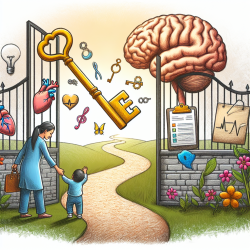The journey of understanding and embracing one's voice is a profound aspect of human psychology. Carol Gilligan's work has been instrumental in highlighting the importance of voice, particularly in the context of women's development and moral psychology. Her insights have not only transformed academic discourse but have also provided valuable lessons for practitioners seeking to improve their skills and create more inclusive environments.
The Power of Voice in Psychology
Carol Gilligan's research emphasizes the significance of voice in human psychology. Her work reveals how societal expectations often suppress individual voices, particularly those of women. By exploring her own experiences and struggles with maintaining her voice amidst societal pressures, Gilligan highlights the broader cultural patterns that affect many individuals.
This understanding is crucial for practitioners working in educational and therapeutic settings. Recognizing the impact of suppressed voices can lead to more empathetic and effective approaches when engaging with students or clients. It encourages professionals to create spaces where individuals feel heard and valued, fostering a sense of empowerment and self-worth.
Implementing Gilligan's Insights
Practitioners can draw several actionable insights from Gilligan's work:
- Create Safe Spaces: Encourage open dialogue where students and clients can express themselves without fear of judgment or repercussion.
- Emphasize Relational Sensibilities: Focus on building strong, empathetic relationships that honor each individual's unique perspective.
- Acknowledge Diverse Experiences: Recognize and validate the diverse experiences and backgrounds that individuals bring to the table.
- Promote Self-Reflection: Encourage individuals to reflect on their own voices and experiences as a means of personal growth and understanding.
The Role of Practitioners in Social Change
The work of Carol Gilligan serves as a reminder that practitioners are not just facilitators but also agents of social change. By implementing strategies that honor individual voices, practitioners contribute to a cultural shift towards greater inclusivity and understanding. This aligns with the broader movement towards dismantling patriarchal structures that have historically marginalized certain groups.
The insights gained from Gilligan's research are not just theoretical; they are practical tools that can be applied in everyday interactions within schools, therapy sessions, and beyond. By embracing these principles, practitioners can enhance their skills and contribute to a more equitable society.
If you are interested in delving deeper into Carol Gilligan's transformative work, I encourage you to explore the original research paper: Developing a different voice: The life and work of Carol Gilligan.










